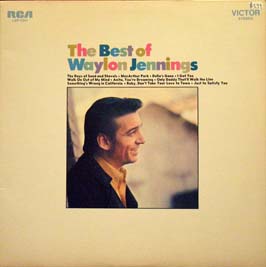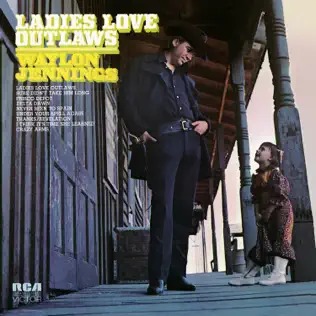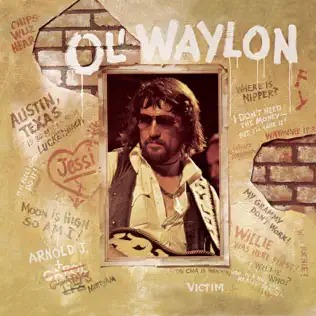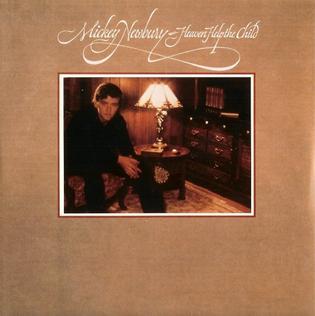Milton Sims "Mickey" Newbury Jr. was an American singer-songwriter and a member of the Nashville Songwriters Hall of Fame.

The Taker/Tulsa is a studio album by American country music artist Waylon Jennings, released in 1971 on RCA Nashville. The LP rose to #12 on the Billboard country albums chart while the single "The Taker" was a Top 5 hit single.

Folk-Country is the major-label debut album by American country music artist Waylon Jennings, released in 1966 on RCA Victor. It is his first collaboration with producer Chet Atkins.

Nashville Rebel is the third studio album by American country music artist Waylon Jennings, released in December 1966 via RCA Victor. It reached #4 on the Billboard country albums chart.

Only the Greatest is a studio album by American country music artist Waylon Jennings, released in 1968 on RCA Victor. It includes the single "Only Daddy That'll Walk the Line," which Jennings took to #2 on the country music charts that year.

Jewels is a studio album by American country music singer and songwriter Waylon Jennings, released in 1968 on RCA Victor.

The Best of Waylon Jennings is a compilation album by American country music artist Waylon Jennings, released in 1970 on RCA Nashville.

Ladies Love Outlaws is an album by American country music artist Waylon Jennings, released on RCA Nashville in 1972. Together with Jennings' previous album Good Hearted Woman, it marks his transition toward his Outlaw Country image and style. "Ladies Love Outlaws" coined the use of the term "Outlaw" to refer to the country music subgenre, which was developing at the time of its release.

Lonesome, On'ry and Mean is a studio album by American country music artist Waylon Jennings, released on RCA Victor in 1973. It was, after Good Hearted Woman and Ladies Love Outlaws, the third in a series of albums which were to establish Jennings as one of the most prominent representatives of the outlaw country movement. Like its successor, Honky Tonk Heroes, the album is considered an important milestone in the history of country music. It represented the first of Jennings' works produced and recorded by himself, following his fight for artistic freedom against the constraints of the Nashville recording establishment.

Wanted! The Outlaws is a compilation album by Waylon Jennings, Willie Nelson, Jessi Colter, and Tompall Glaser, released by RCA Records in 1976. The album consists of previously released material with four new songs. Released to capitalize on the new outlaw country movement, Wanted! The Outlaws earned its place in music history by becoming the first country album to be platinum-certified, reaching sales of one million.

Leather and Lace is a duet album by Waylon Jennings and Jessi Colter, released on RCA Records in 1981.

Ol' Waylon is a studio album by American country music artist Waylon Jennings. It was released on RCA Victor in 1977. It eventually became one of Jennings' highest-selling albums, due in no small part to the phenomenal success of the chart-topping "Luckenbach, Texas ." It was also the singer's fourth solo album in a row to reach the top of the country charts, remaining there for thirteen weeks and becoming country music's first platinum album by any single solo artist.

I've Always Been Crazy is a studio album by American country music artist Waylon Jennings, released on RCA Victor in 1978.

What Goes Around Comes Around is a studio album by American country music artist Waylon Jennings, released on RCA Victor in 1979.

Black on Black is a studio album by American country music artist Waylon Jennings, released on RCA Victor in 1982.

"Luckenbach, Texas " is a song recorded by American country music artist Waylon Jennings. It was released in April 1977 as the first single from the album Ol' Waylon. It was written by Chips Moman and Bobby Emmons.

Willie Nelson and Family is the twelfth studio album by American country music singer Willie Nelson, released in 1971.

Looks Like Rain is a 1969 concept album by singer-songwriter Mickey Newbury. After recording his debut album with RCA, Newbury was dissatisfied with the resulting album and left RCA to pursue a style closer to his tastes. Recorded at Cinderella Sound, as his next two albums would be, the result is widely considered his first real recording and represents a peak in the singer songwriter movement, especially for Nashville. The sound and style of the record would be highly influential during the Outlaw Movement during country music in the 1970s especially on albums by David Allan Coe and Waylon Jennings. Linking the tracks with delicate arrangements and liberal amount of atmosphere, the record contains some of Newbury's most celebrated compositions including "She Even Woke Me Up to Say Goodbye", "33rd of August", "I Don't Think Much About Her No More", and "San Francisco Mabel Joy". AllMusic's review of the album concludes, "Looks Like Rain is so fine, so mysterious in its pace, dimension, quark strangeness and charm, it defies any attempt at strict categorization or criticism; a rare work of genius."

Heaven Help the Child is a 1973 studio album by country singer-songwriter Mickey Newbury. The album was Newbury's third consecutive release recorded at Cinderella Studios. Noted for its dramatic remakes of four previous Newbury songs: "Sweet Memories" and "Good Morning Dear" from Harlequin Melodies, "Sunshine" from Sings His Own, and "San Francisco Mabel Joy" from Looks Like Rain, the album is considered equal among Newbury's acclaimed Looks Like Rain and Frisco Mabel Joy. Apart from its definitive versions of three of Newbury's early songwriting hits, the album is also acclaimed for its title track, with its multi-generational narrative, the haunting "Cortelia Clark", and the bluegrass classic "Why You Been Gone So Long". In his AllMusic review of the LP, Thom Jurek declares, "Newbury, for the third time in as many recording sessions, came up with a record that defies categorization. And for the third time in a row, he had done the impossible, created a masterpiece, a work of perfection."

Ralph Eugene Mooney was an American steel guitar player and songwriter, he was inducted into the Steel Guitar Hall of Fame in 1983. He was the original steel guitarist in Merle Haggard's band, The Strangers and Waylon Jennings's band, The Waylors.



















